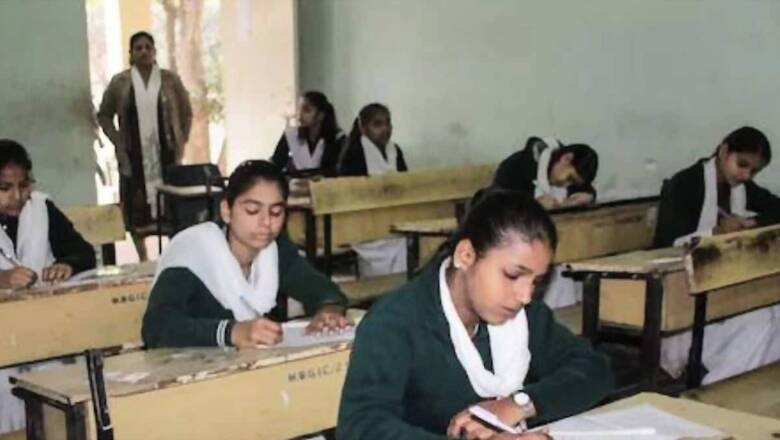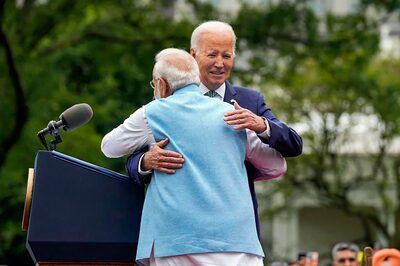
views
The National Council for Educational Research and Training’s (NCERT) standard-setting body is learnt to have written to the Union Ministry of Education (MoE) seeking it to urge state governments to give a formal go-ahead to the respective state boards to implement the recommendations of the ‘Equivalence’ report released by it last month that showed gaps in the performance of students from these boards.
The recommendations are part of school reforms proposed under the new National Education Policy (NEP) and the National Curriculum Framework-for School Education (NCF-SE).
While the state boards are “willing” to implement the suggestions, they require a formal approval and notification from their respective governments to do the same, News18 has learnt.
“We have requested the ministry to urge the state governments to acknowledge the same. In the meantime, it’s suggested that they can start with working on preparing question banks for the senior classes, one of the crucial measures highlighted in the report,” said an official familiar with the matter.
PARAKH (Performance Assessment, Review and Analysis of Knowledge for Holistic Development), a constituent unit of the NCERT is tasked with setting standards and guidelines for student assessment and evaluation for all recognised school education boards in India.
This national assessment body had released the ‘Establishing Equivalence Across School Boards’ report, which showed variation in performance of students not only across state boards, but even within the boards.
Some of the key recommendations of the report included school boards going for a cumulative system of assessment where the performance of students in classes 9,10 and 11 counts towards the final assessment in class 12. It also suggested a more demand-based exam system as well as that the boards develop a cadre of ‘professional paper setters’ in order to standardise the assessments in classes 9 to 12. For standardising the question papers, it suggested that for classes 9 and 11 the boards develop a question bank for all subjects for the year-end examinations.
There are 59 existing school boards for senior and senior secondary education across the country, of which three are national-level boards while the remaining are state boards.
Since education is a subject in the ‘concurrent’ list, states are not bound to follow the directives of the Central government.
A senior official in the Punjab School Education Board, said that since the recommendations are part of the NEP, the approval has to come from higher authorities.
“We have submitted our proposal to the higher authority. It is being analysed at different levels. Once they approve it, we will notify it, but it’s a long process and will take time,” the official said.
PARAKH has been conducting regional workshops with the state boards on the suggestions made and how to adopt these in the teaching-learning processes.
An official from a state education body in Tamil Nadu, who had attended the workshops, said that the sessions were “interactive and helpful”, but there is a procedure to formally integrate these into the curriculum, which is yet to begin.
JH Zoremthanga, Chairperson of Mizoram Board of School Education, said that the recommendations of the report are important for exam-related reforms. “We are discussing it with the state government, including the role of the Board in implementing these. However, it includes a lot of financial implications, which needs to be sorted out. Yet, we plan to start with preparing of question banks, as suggested in the report,” he said.
News18 has sent a query to the MoE in the matter, but a response is awaited. This story will be updated, if and once, a response is received.
Notably, an analysis conducted by the MoE last month that examined the performance of classes 10 and 12 students across the 59 school boards showed that more students from the state boards failed the classes than those from the central boards.




















Comments
0 comment